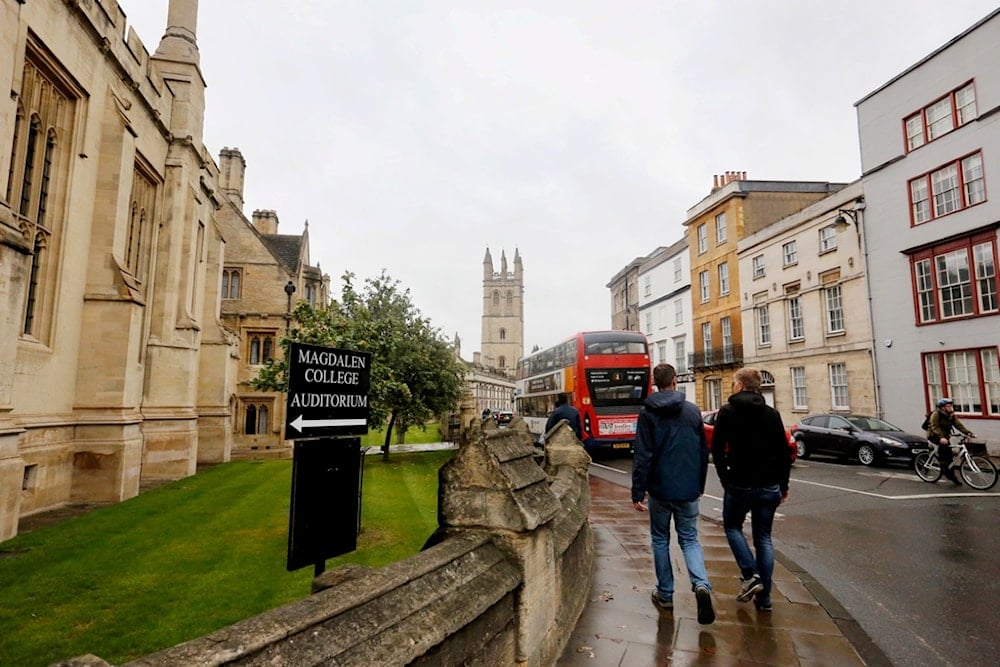Student loans in UK hit £53K average as debt surges to £266 bln
Graduates in England now face record-high student debt, averaging £53,000, amid rising living costs.
-

People walk around Oxford University's campus on Sept. 3, 2017, in Oxford, England. (AP Photo/Caroline Spiezio, File)
Graduates in the UK are now leaving university with government-backed student loans averaging £53,000, a 10% increase from the previous year, amid surging living costs and mounting pressure on the higher education system. New data from the Student Loans Company (SLC) shows that loan balances rose by £5,000 in 2024-25, compared to the previous year's £48,270 average.
In contrast, student debt remains far lower in other parts of the UK. Graduates from Scotland, where local students are not charged undergraduate tuition fees, owe just £17,000 on average. In Northern Ireland, student debt averages £28,000, while in Wales it is approximately £39,470.
Tuition strain
The cost-of-living crisis is also reshaping student life. A recent Higher Education Policy Institute survey revealed that 68% of full-time students are working during term time, clocking an average of 13 hours per week, the highest figure in the survey's 10-year history. This reflects growing financial strain, with many students relying on part-time jobs to make ends meet.
At the same time, more than 3 million former students are actively repaying their loans through the UK tax system. The SLC reports that 62% of borrowers liable for repayment are currently contributing, with the average annual repayment standing at £1,100.
The total value of England's student loan book has reached a staggering £266 billion, up from £64 billion a decade ago, largely due to the introduction of £9,000 annual tuition fees. From September 2025, tuition for domestic students will rise further to £9,535 per year, placing additional pressure on students and families.
Read more: UK students urged for university defunding over Gaza genocide support
However, the tuition hike is unlikely to resolve the sector's deepening financial crisis. According to the National Centre for Entrepreneurship in Education, a quarter of university leaders believe their institutions require a "complete overhaul" to survive. Over half now prioritize financial stability above all else, while nearly a third cite international student recruitment as their most critical focus.
Funding fragility
As reported by The Guardian, a new analysis from the Tony Blair Institute warns that the falling real-terms value of domestic tuition fees, eroded by inflation since their introduction in 2012, has forced universities to rely increasingly on income from international students to cross-subsidize domestic education.
This dependency places institutions at risk amid looming changes to UK immigration policy. The government is reportedly considering a 6% levy on international student fees, stricter compliance rules, and reduced post-study work rights, moves that could significantly disrupt university funding.
Alexander Iosad, director of government innovation policy at the institute, noted that "universities with lower international rankings and former polytechnics had weaker finances and were most reliant on international students, putting them most at risk from any visa changes."
The institute's report concludes by urging the government to consider how immigration reforms interact with the urgent need for a long-term overhaul of the higher education funding model, warning that without decisive action, many UK universities could face structural collapse.
Read more: Widespread racism against Black students in UK colleges: Report

 3 Min Read
3 Min Read










